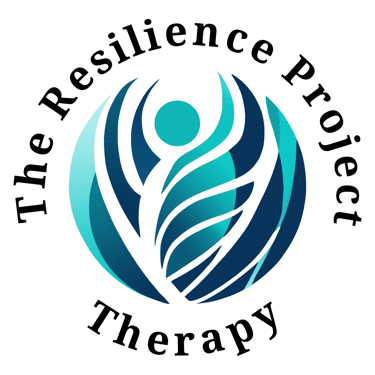How to Manage Anger and Improve Your Mental Health
Tips and Tricks to Help You Not Let Anger Get Out of Control
Christian Gray Hering, LCSW
8/8/20232 min read


Anger is a normal and natural emotion that everyone experiences from time to time. Anger can help us express our feelings, assert our rights, protect ourselves, and motivate us to change. However, anger can also be harmful if it is too intense, too frequent, too prolonged, or expressed inappropriately. Anger can damage our relationships, health, work, and well-being.
Therefore, it is important to learn how to manage anger in a healthy and constructive way. Here are some tips that may help you:
Recognize your anger triggers
Anger triggers are the situations, people, or events that make you feel angry. They can be different for everyone and depend on your personality, expectations, values, and experiences. Some common anger triggers are frustration, injustice, criticism, disrespect, betrayal, or loss. By identifying your anger triggers, you can anticipate and avoid them or prepare yourself to cope with them¹.
Be aware of your anger warning signs
Anger warning signs are the physical, emotional, and behavioral cues that indicate you are getting angry. They can include increased heart rate, sweating, trembling, flushing, clenched fists, raised voice, irritability, or hostility. By noticing your anger warning signs, you can intervene early and calm yourself down before you lose control².
Use relaxation techniques
Relaxation techniques are methods that help you reduce your stress and tension and restore your balance. They can include deep breathing, progressive muscle relaxation, meditation, yoga, or listening to soothing music. By using relaxation techniques regularly or when you feel angry, you can lower your arousal and diffuse your anger³.
Think before you speak
When you are angry, you may say things that you don't mean or that you will regret later. To avoid this, take a moment to pause and think before you respond. Consider the consequences of your words and actions and choose the most appropriate and respectful way to express yourself⁴.
Find healthier ways to express your anger
Anger can be expressed in different ways: aggressively (by attacking or hurting others), passively (by suppressing or ignoring your feelings), or assertively (by stating your needs and feelings clearly and respectfully). The most effective and healthy way to express your anger is assertively⁵. This means being honest about what you feel and why, without blaming or insulting others. It also means listening to others' perspectives and finding a constructive solution that works for everyone.
Seek professional help
If your anger is causing you significant distress or impairing your functioning in any area of your life, you may benefit from seeking professional help. A therapist can help you understand the causes and effects of your anger, provide you with evidence-based strategies to manage it better, and support you in achieving your goals.
In short…
Anger is a common and normal emotion that can be managed with time and effort. By following these tips, you can learn to cope with your anger in a healthy and constructive way and improve your mental health.
Sources:
¹: https://www.healthline.com/health/mental-health/how-to-control-anger#identify-your-triggers
²: https://www.mayoclinic.org/healthy-lifestyle/adult-health/in-depth/anger-management/art-20045434
³: https://www.helpguide.org/articles/relationships-communication/anger-management.htm
⁴: https://www.webmd.com/mental-health/anger-management
⁵: https://www.indeed.com/career-advice/career-development/anger-in-the-workplace
The Resilience Project Therapy
Mailing
P.O. Box 832182
Richardson, TX 75083
Contacts








